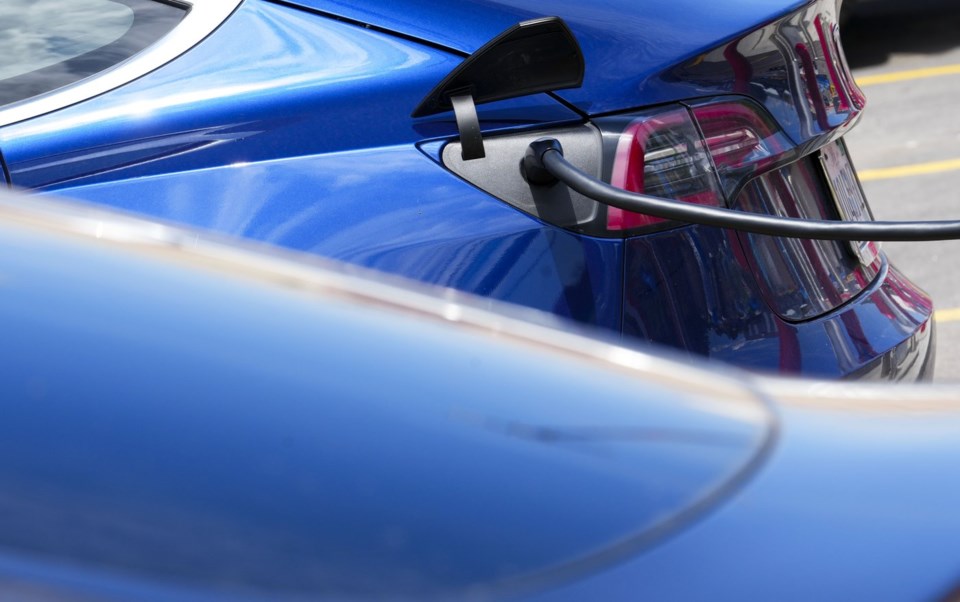OTTAWA — It is already more cost effective over the long term to buy an electric vehicle than a gas-powered model, but the savings must get substantially higher if Canada is to meet its EV sales targets, the parliamentary budget office concluded in a new analysis.
The PBO report published Thursday comes eight months after the federal Liberals mandated that battery-operated passenger cars must make up one-fifth of all new vehicle sales by 2026, growing each year until it hits three-fifths by 2030, and all vehicles by 2035.
The most recent statistics show that in 2023 EVs made up almost 11 per cent of new vehicle registrations, the first time that figure was over 10 per cent nationally.
The report compares the purchase price of a new vehicle, along with federal and provincial rebates for electric vehicles and the operating and maintenance costs over eight years.
For passenger cars, the eight-year cost for an EV model in 2022 was 88 per cent of the eight-year cost of a similar gas-powered model, and for SUVs and trucks, the EV models are about 92 per cent of the cost of buying, operating and maintaining a gas-powered option.
While EVs are more expensive than gas models to buy — about six per cent more for comparable models — the operating and maintenance costs can be as much as 2.5 times less per year.
Still, the PBO says it's not enough to drive people into electric cars as fast as the governments want them to go.
The savings would need to grow by 31 per cent to hit the 2030 targets, the report said. That means if the cost of an electric car or truck is 95 per cent of buying and maintaining a gas model now, it would need to fall to about 65 per cent.
Joanna Kyriazis, director of public affairs at Clean Energy Canada, said it's clear EVs are cheaper to run but that's not enough for many people to make the switch.
"After all, higher upfront costs are a barrier for many cash-strapped families, even if they recognize an EV would save them money over time," she said.
She said price does make a difference, pointing out that EVs accounted for one in four new vehicles sold in Europe in 2023. Europe has 11 different electric vehicle options that cost less than $45,000. In Canada there were just two, and electric vehicle sales were 10.8 per cent last year.
Environment Minister Steven Guilbeault said in a statement that the PBO's report is "thoughtful" and notes it confirms that EV prices are continuing to decline relative to gas models.
The government's regulations that set the sales mandate are contributing to that, with one study suggesting gas powered vehicles will cost 6.1 per cent more by 2035, while EVs are expected to cost 22 per cent less as a result of the mandate.
He did point out the PBO report doesn't include the purchase or cost of plug-in hybrids, which for some consumers are a bridge between a full EV and a gas model.
In 2023 plug-in hybrids, which use both an electric and an internal-combustion motor, accounted for three per cent of total vehicle sales and 24 per cent of all battery-electric vehicles sold.
This report by The Canadian Press was first published Aug. 29, 2024.
Mia Rabson, The Canadian Press



